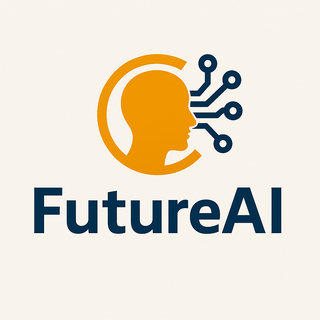🔹 AI in Personalized Healthcare – The Future of Medicine
Artificial Intelligence (AI) is transforming healthcare by providing personalized treatments, early disease detection, and robotic surgeries. It helps doctors make better decisions, improving patient care and saving lives.
🔹 1. How AI is Used in Healthcare?
AI improves healthcare through data analysis, machine learning, and automation.
✅ Medical Diagnosis – AI detects diseases like cancer, diabetes, and heart issues faster than humans.
✅ Personalized Treatment – AI suggests treatments based on a patient’s medical history.
✅ Robotic Surgery – AI-powered robots assist doctors in complex surgeries.
✅ Drug Discovery – AI speeds up the process of developing new medicines.
✅ Virtual Health Assistants – AI chatbots help patients schedule appointments and answer health questions.
📌 Example: IBM Watson AI can diagnose diseases by analyzing millions of medical records in seconds.
🔹 2. Benefits of AI in Healthcare
✔️ Faster & More Accurate Diagnoses – AI detects diseases earlier and with more precision.
✔️ Reduced Medical Errors – AI helps avoid human mistakes in diagnosis and treatments.
✔️ Better Patient Care – AI chatbots and virtual assistants provide 24/7 medical support.
✔️ Cost Savings – AI reduces hospital costs by automating administrative tasks.
✔️ Medical Research Advancement – AI speeds up clinical trials and new drug discoveries.
📌 Example: Google’s AI system DeepMind predicts kidney disease 48 hours before symptoms appear!
🔹 3. Challenges of AI in Healthcare
❌ Data Privacy Risks – Patient medical records must be protected from cyberattacks.
❌ Lack of Human Touch – AI can’t replace the emotional support of doctors.
❌ Expensive Implementation – AI technology is costly for smaller hospitals.
❌ Ethical Concerns – AI must follow medical ethics when making decisions.
📌 Example: AI sometimes struggles to detect rare diseases due to limited training data.
🔹 4. Future of AI in Healthcare
🚀 AI-powered hospitals with robotic doctors
🚀 Wearable health monitors for real-time disease detection
🚀 AI predicting and preventing pandemics
🚀 Smart prosthetics controlled by the brain
📌 The future of healthcare is AI-driven, making treatments faster, cheaper, and more effective!
🎯 Conclusion
✔️ AI is transforming healthcare with faster diagnoses, robotic surgeries, and personalized treatments.
✔️ It reduces medical errors and improves patient care.
✔️ Challenges include privacy risks, high costs, and ethical concerns.
✔️ The future of AI in healthcare includes self-learning AI doctors, wearable health monitors, and predictive medicine.



Post a Comment
0Comments